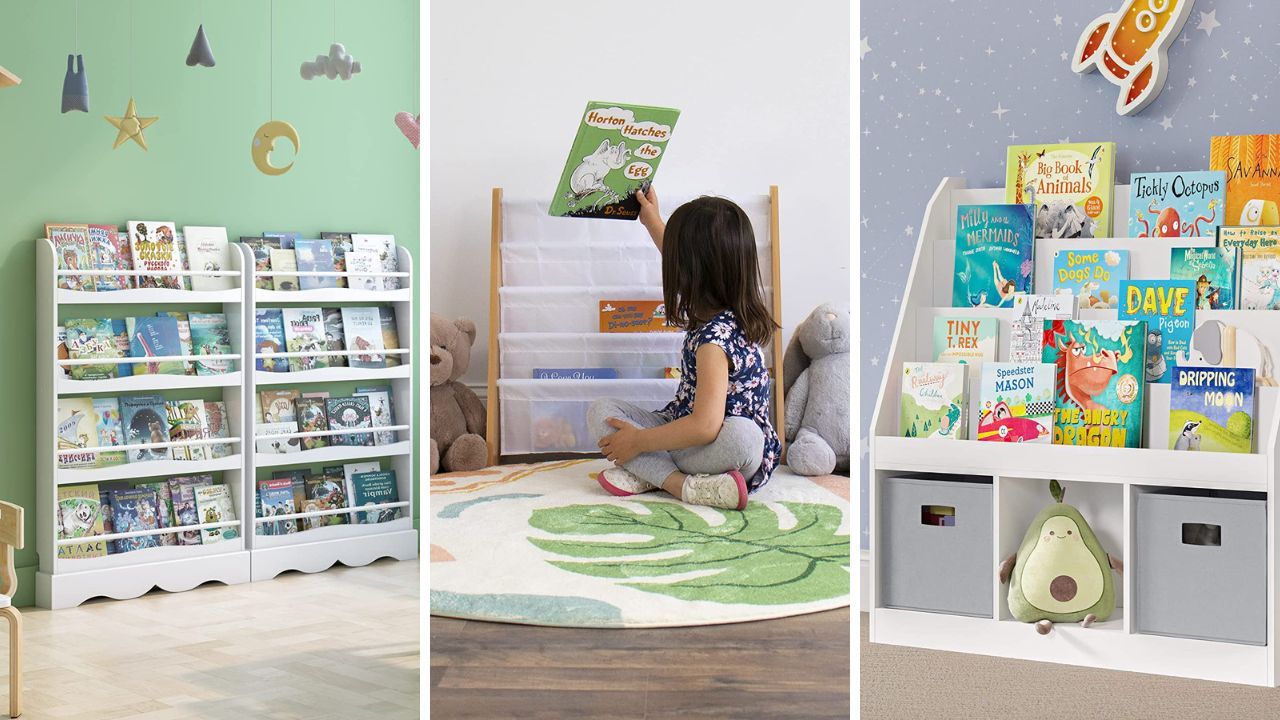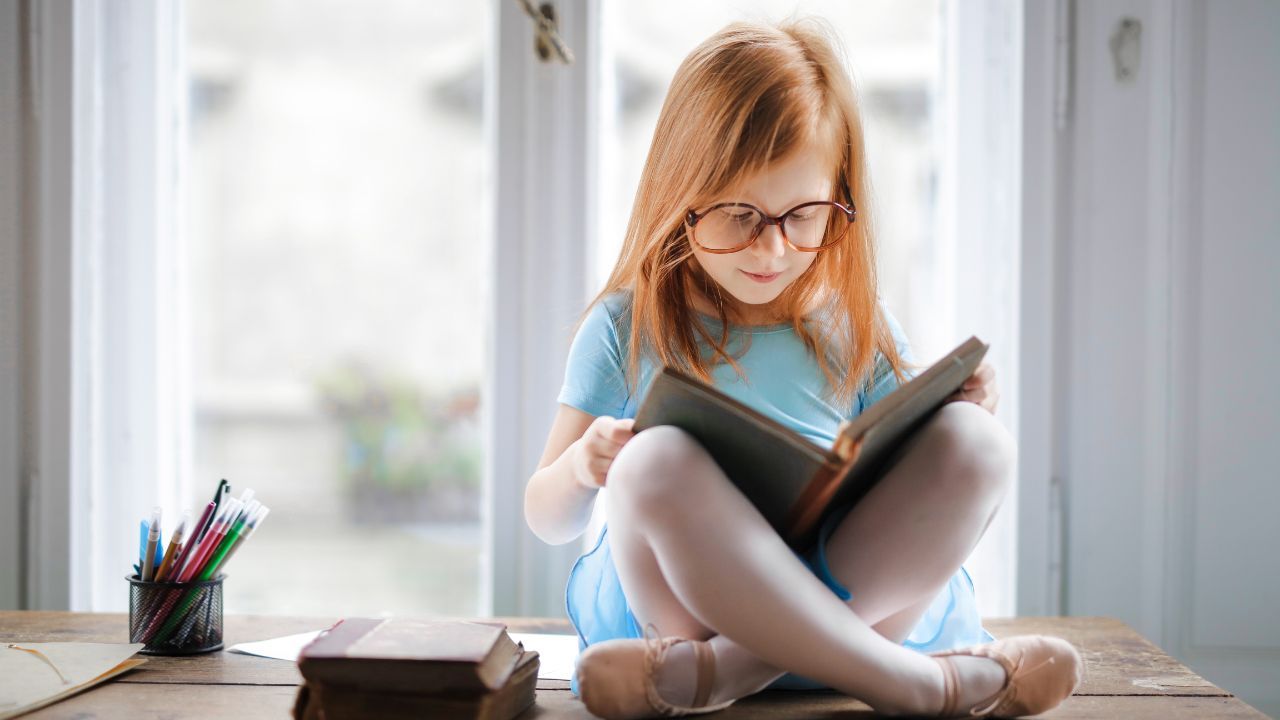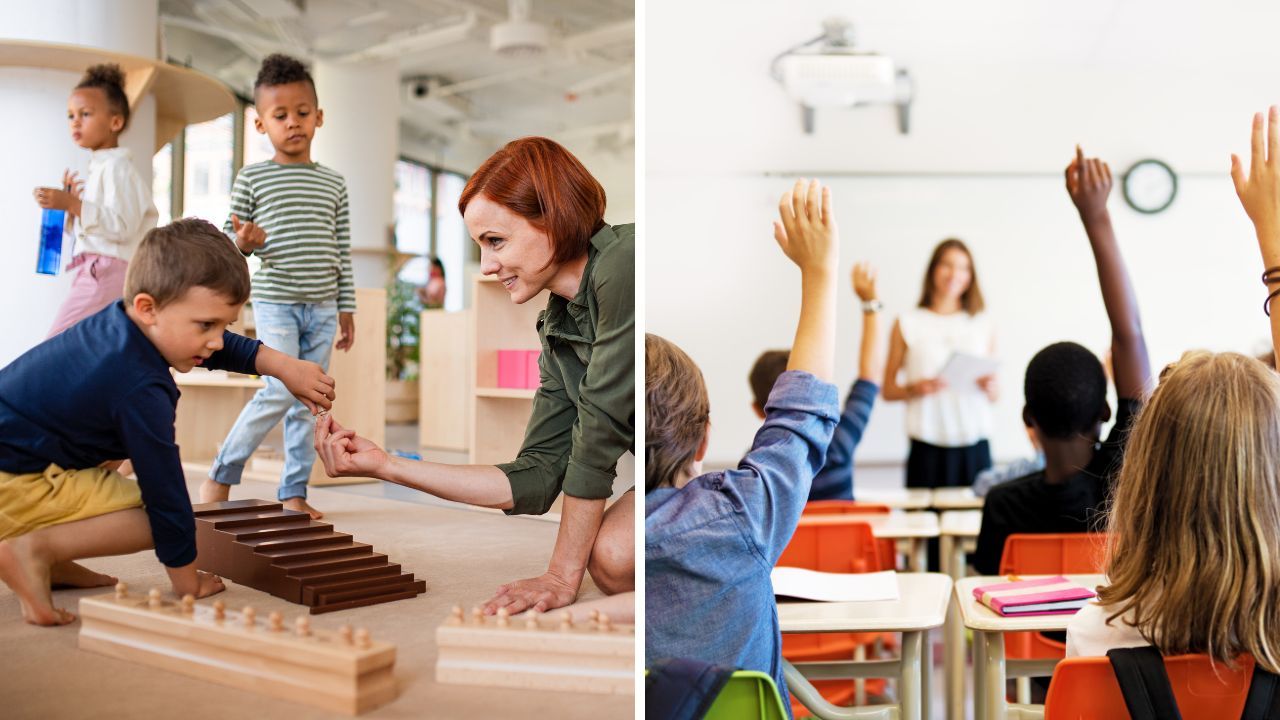
How is Montessori Different from Traditional Education?
Unravel 'How is Montessori Different from Traditional Education'. Dive into the hands-on and active learning methods of Montessori education.
If you're a parent, teacher, or just someone interested in education, you've probably asked yourself this question at some point: "How is Montessori different from traditional education?"
It's an important question to ask, especially if you're considering different educational options for your child. Understanding the different approaches to education can help ensure your child gets the best possible learning experience.
Understanding Traditional Education
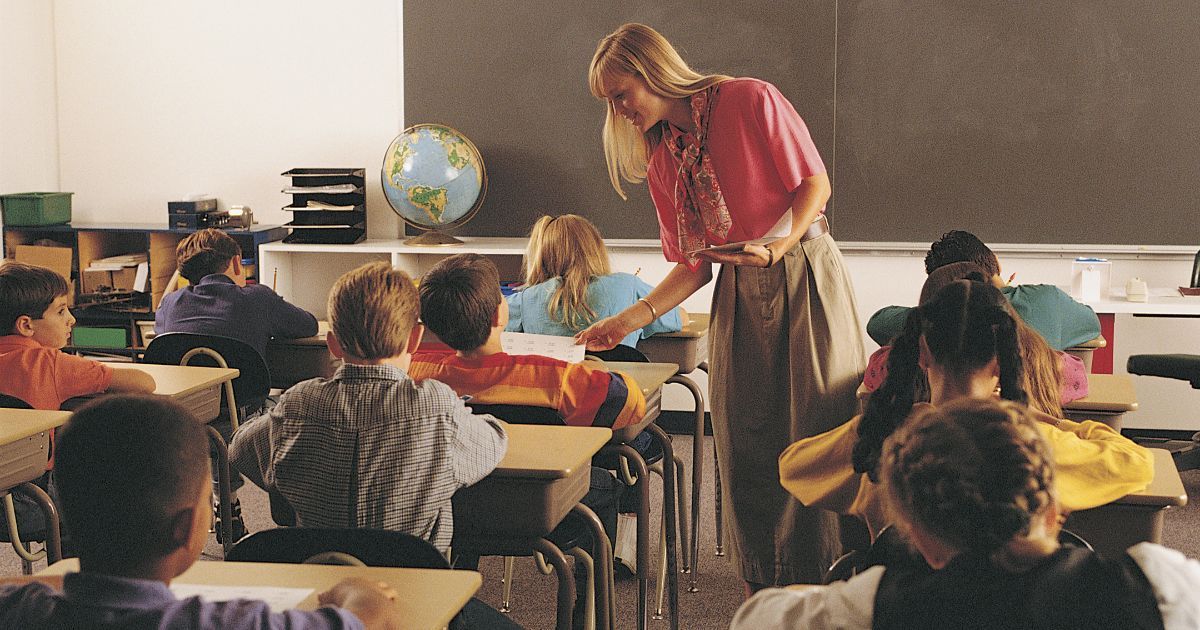
Before we delve into how Montessori is different, let's first understand what we mean by 'traditional education'.
What is Traditional Education?
Traditional education, often referred to as conventional education, is the most common form of teaching in schools today. It's a system that's been in place for centuries and is based on a structured, standardized approach to learning.
Key Characteristics of Traditional Education
In a traditional school setting, children are grouped based on their age. The curriculum is fixed and follows a set schedule, with specific goals to be achieved by the end of each academic year.
Pros and Cons of Traditional Education
Like any system, a traditional school has its strengths and weaknesses.
On one hand, it provides a structured environment where students learn essential knowledge and skills. It fosters discipline and prepares students for future environments that require adherence to rules and routines.
On the other hand, critics argue that a traditional school can stifle creativity and individuality. It may not cater to every student's unique learning style, and the emphasis on grades can put undue pressure on students.
Understanding Montessori Education

Now, let's shift our focus to the Montessori education system. This method of teaching might not be as widespread as traditional education, but it has been gaining recognition for its unique approach.
What is Montessori Education?
Montessori education was developed by Dr. Maria Montessori, an Italian physician, and educator, in the early 20th century.
Her philosophy centered around the idea that children learn best when their environment supports their natural desire to acquire skills and knowledge.
At the heart of Montessori education is the principle of child-centered learning. Children are encouraged to direct their own learning, participating in child-led activities, referred to as "work," and exploring their interests at their individual pace.
Key Characteristics of Montessori Education
In a Montessori classroom, children of different ages learn together in the same environment.
- The curriculum is flexible, allowing children to explore topics that interest them.
- Teachers act more as guides, facilitating learning rather than dictating it.
- Assessment in Montessori is more qualitative, focusing on a child's progress over time rather than assigning them a grade.
The Montessori curriculum offers five key areas of study: Practical Life, Sensorial, Mathematics, Language, and Culture.
These areas provide a holistic education experience, nurturing not just a child's intellect, but also their physical, emotional, and social development.
Pros and Cons of Montessori Education
Montessori education has many benefits:
- It encourages self-directed learning, fosters independence, and allows children to learn at their own pace.
- It values individuality and creativity, helping children develop a love for learning.
However, Montessori education also has its critics:
- Some argue that it lacks structure, which could leave gaps in a child's education.
- Others worry that the lack of grades and traditional assessment methods makes it hard to track a child's progress.
Comparison Between Montessori and Traditional Education
Now that we have a basic understanding of both traditional and Montessori education, it's time to delve into the key differences between the two.

Approach to Learning: Self-Discovery vs. Instruction-Based
In a traditional classroom, learning is often instruction-based. The teacher stands at the front of the room, disseminating information, while students listen, take notes, and absorb the information.
In contrast, a Montessori school's focus emphasizes self-discovery. Children are encouraged to explore and learn independently.
For example, instead of a teacher explaining how plants grow, a Montessori student might plant a seed and observe its growth over time, learning firsthand about the process.
Classroom Environment: Multi-Age Grouping vs. Age-Specific Grouping
Traditional classrooms are typically divided by age. But in Montessori, you'll find multi-age groupings.
This allows younger children to learn from older ones, and older children to reinforce their knowledge by teaching younger ones. It mirrors real-world environments where individuals interact with others of various ages.
Role of Teachers: Guides vs. Instructors
In traditional education, teachers are seen as the primary source of knowledge.
However, in Montessori classrooms, teachers act as guides or facilitators. They provide resources, ask probing questions, and guide students toward finding answers on their own.
Pace of Learning: Self-Paced vs. Standardized Pacing
Lastly, in traditional education, all students are expected to learn at the same pace.
Conversely, Montessori recognizes that each child learns at their own pace. Children are given the freedom to spend more time on topics they find challenging and move quickly through areas they grasp easily.
Benefits of Montessori Over Traditional Education
So, what benefits does a Montessori education offer over traditional education?

Development of Self-Sufficiency and Personal Independence
Montessori classrooms aim to develop self-sufficiency and personal independence.
This philosophy is based on the belief that every child possesses an innate drive for self-development and, given the right environment, can learn to take charge of their own learning journey.
Children are also encouraged to carry out tasks independently, whether it's setting up their workspace, cleaning up after an activity, or resolving conflicts with peers. This helps them develop practical life skills and a sense of responsibility.
Personal independence, on the other hand, is cultivated by respecting each child's individuality and giving them the freedom to explore their interests.
- Montessori teachers act as guides rather than instructors, providing support and guidance when needed, but ultimately allowing children to direct their own learning.
- Montessori education also emphasizes the development of emotional self-sufficiency.
- Children are encouraged to express their feelings and thoughts openly and are taught to manage their emotions in a healthy way. This emotional self-reliance can boost their self-esteem and resilience, essential traits for personal independence.
Encouragement of Individual Learning Paths
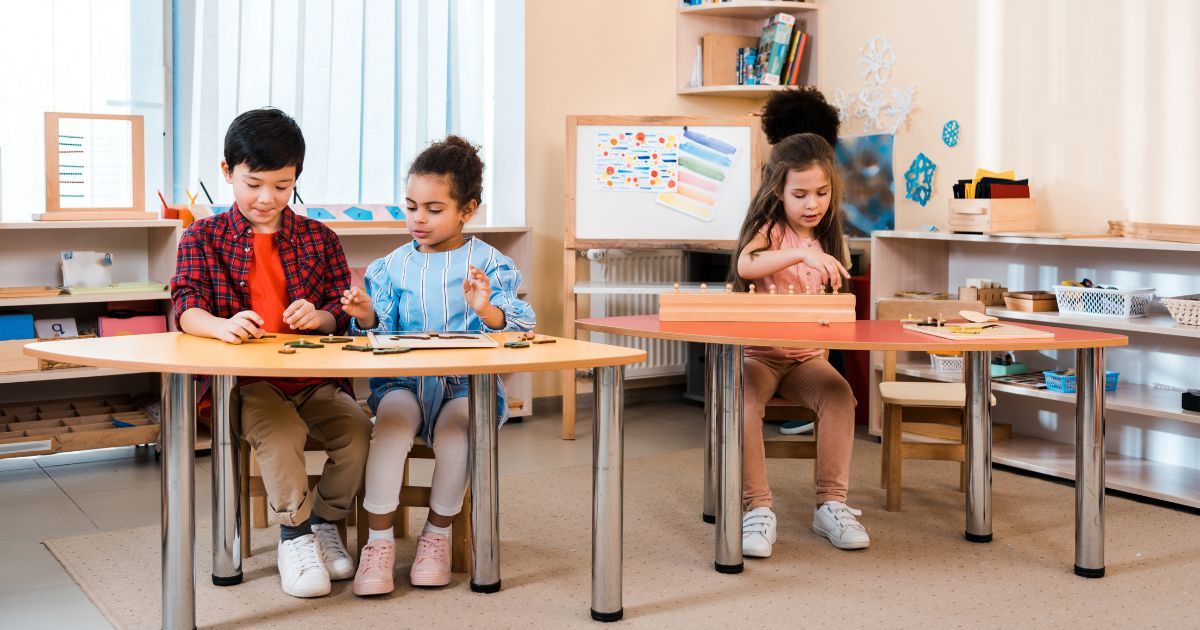
Every child is unique, and so is their learning path. Montessori education respects this individuality, allowing each child to explore and learn in a way that suits them best.
Montessori education encourages individual learning paths. Recognizing that every child learns differently, it allows children to engage in tasks that align with their interests and learning style.
This personalized approach promotes deep, meaningful learning and helps develop critical skills such as decision-making and problem-solving.
By respecting each child's individuality and promoting self-directed learning, Montessori education fosters a lifelong love of learning and prepares children for real-world success.
Active Learning Within Their Own Pace and Rhythms
This approach discourages rote memorization and instead promotes the development of critical thinking skills through hands-on, practical experience.
It also emphasizes the importance of pacing, acknowledging that every child learns at a unique rhythm.
By combining movement with speech and song, active learning can further stimulate a child's mind, enhancing cognitive development.
This learner-centered approach fosters a sense of responsibility in students, encouraging them to take ownership of their knowledge.
Ultimately, this method ensures that children are not just passive recipients of information but active participants in their learning journey.
Outdoor Time Is Essential To Learning
In contrast to traditional classrooms, Montessori students will embrace the power of nature as a teaching tool.
Students not only learn from nature but also within it, fostering an appreciation for the environment while nurturing their motor skills and creativity.
Engaging in activities like gardening, exploring outdoor reading areas, and utilizing sensory math materials, children can enjoy enriching and educational experiences in the great outdoors. This is my favorite part of the Montessori journey because I love the outdoors and I love sharing it with my daughter.
Successful People from Montessori Education
To illustrate the potential impact of a Montessori education, let's look at some notable individuals who were educated in Montessori schools.

Sergey Brin and Larry Page, co-founders of Google, credit their Montessori education for their success. They believe that the self-directed learning approach of a Montessori environment allowed them to think differently and not be afraid of making mistakes.
Similarly, Jeff Bezos, founder of Amazon, attended a Montessori school as a child. His teachers recall him being very focused and determined – characteristics that have undoubtedly contributed to his success.
While these are high-profile examples, countless other Montessori-educated individuals have gone on to lead successful, fulfilling lives. Of course, success isn't guaranteed by any educational method, but these stories highlight the potential of the Montessori Philosophy.
Choosing the Right Education for Your Child
Choosing an educational path for your child is no small task. Whether you're considering Montessori or traditional schools, it's important to consider a few key factors.
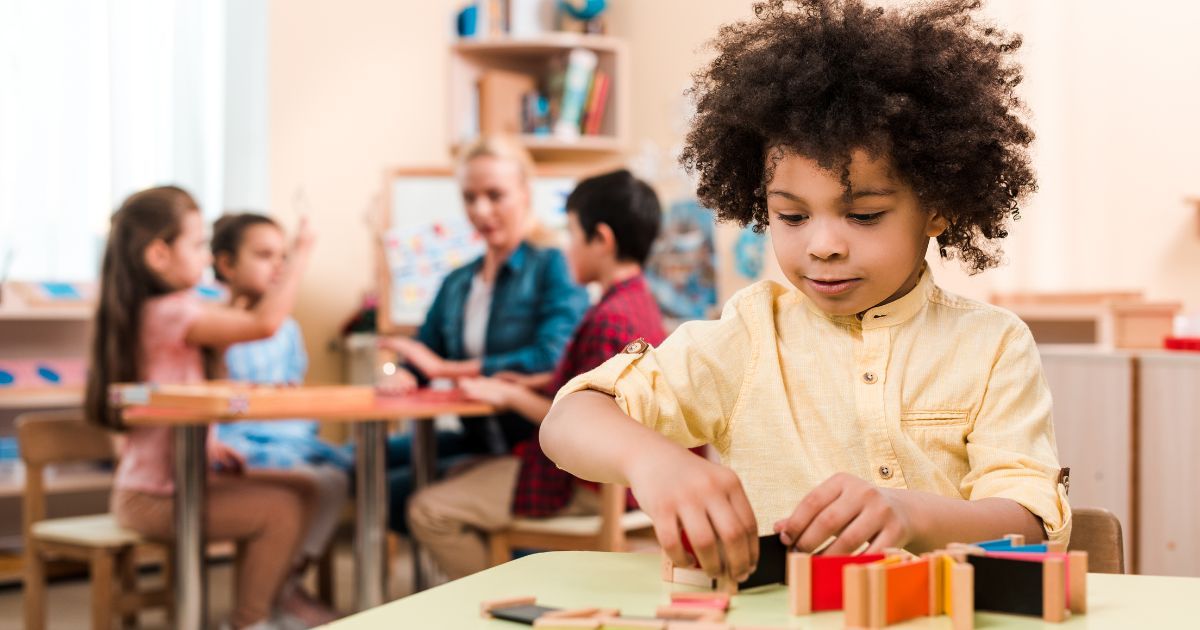
Factors to Consider
First, consider your child's learning style. Do they enjoy structured tasks or do they learn better through exploration and discovery?
Next, think about their social skills. Would they benefit from age-specific grouping, or would a mixed-age environment be more conducive to their growth?
Also, consider practical factors such as the availability of schools in your area, tuition costs, and the school's philosophy and values.
Assessing Your Child's Learning Style and Needs
To understand your child's learning style, observe how they interact with their environment. Do they enjoy reading books, or do they prefer hands-on activities? Do they learn better in quiet environments, or do they thrive amidst activity and noise?
You may also want to seek advice from educators or a child psychologist. They can provide valuable insights and guide you toward an educational approach that best suits your child's needs.
Final Thoughts
We've explored the differences between Montessori and traditional education, delved into their pros and cons, and highlighted some success stories from Montessori education. We've also provided some tips on how to choose the right education for your child.
Remember, there's no one-size-fits-all approach to education. Each child is unique, and what works for one may not work for another. The goal is to find an environment where your child will thrive, feel valued, and develop a lifelong love for learning.
Now, we'd love to hear from you. Do you have any experiences with Montessori or traditional education you'd like to share? Any insights or tips for other parents navigating this decision? Please share your thoughts in the comments section below.
And if you're interested in Montessori education, we encourage you to contact a local Montessori school for more information. They can provide detailed insights into their curriculum, teaching methods, and how they foster a love for learning in each child.
Thank you for joining us on this exploration of the Montessori method and traditional education. Here's to finding the perfect educational path for your child!
Before You Go...
